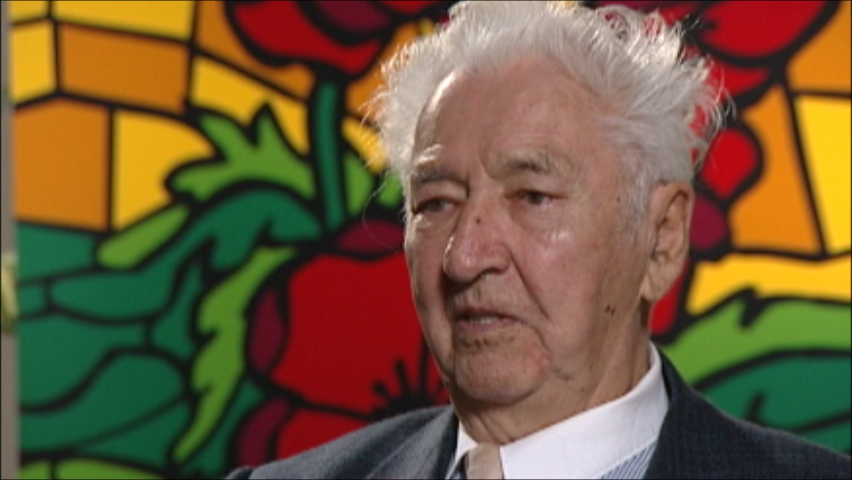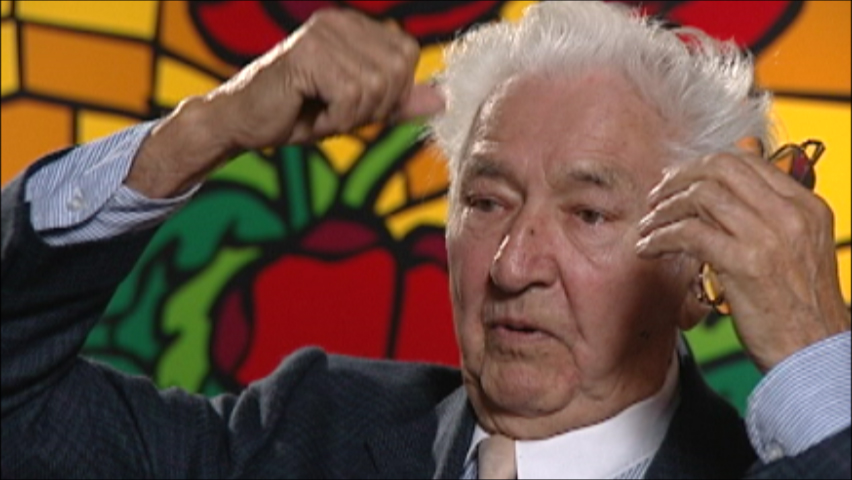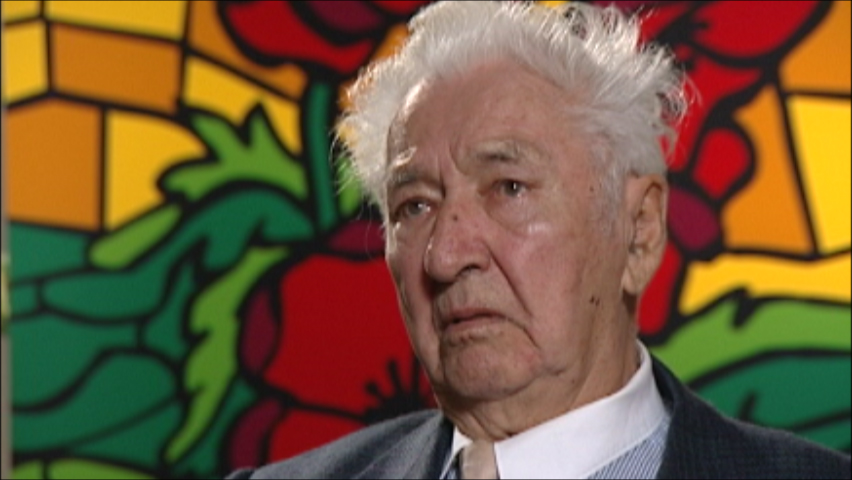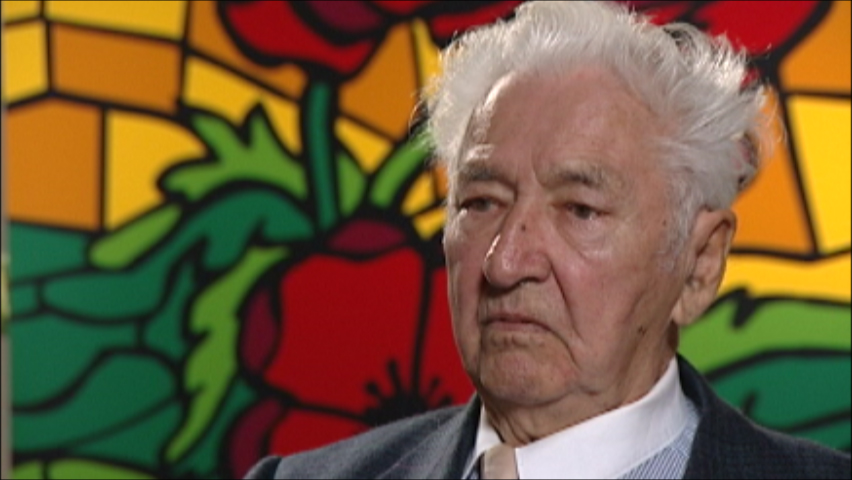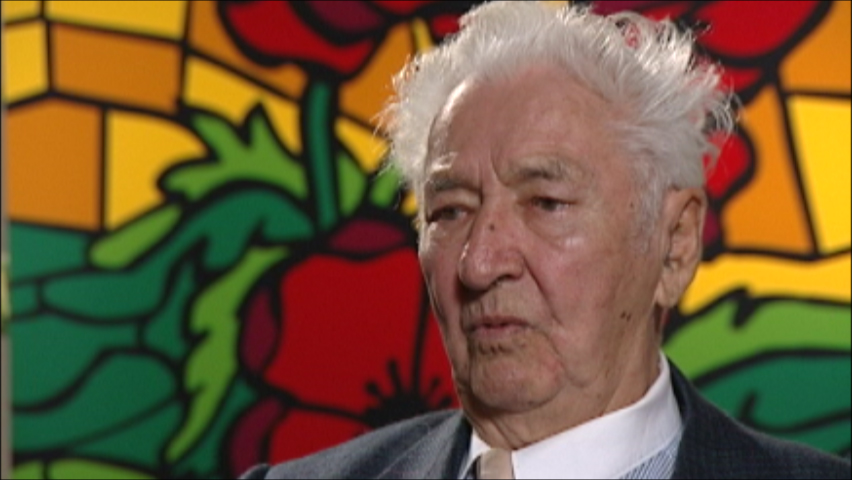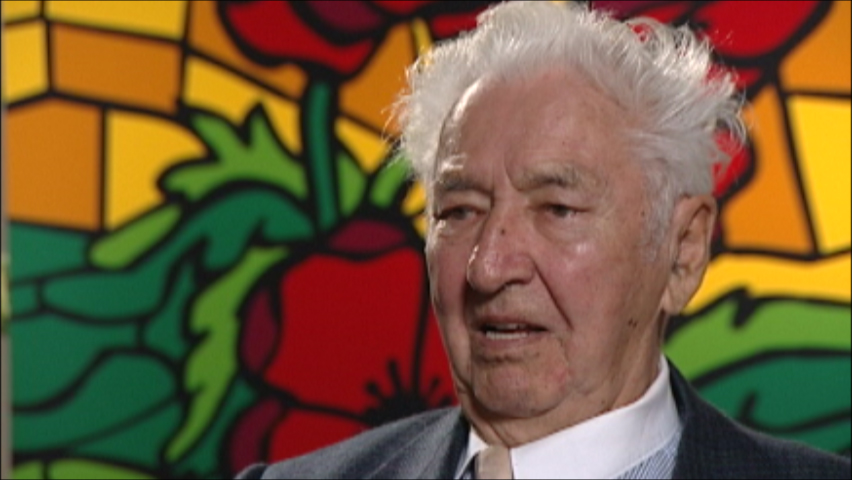The Art of Deception
Heroes Remember
The Art of Deception
Transcript
All of the Canadians, I would say.
That weren't going to be actually take part
in the exact D-Day landing on the 6th,
were all down on the coast of Dover.
We used to drive around the coast
there on the cliffs of Dover.
And the Germans knew, well they could
see across there on a clear day you
could see France. You can see Calais.
You can see the church steeples and
all and they can see,
of course they can see too.
We'd drive around there and then they
had a lot of, they built a lot of fake landing
craft and tanks, fake landing tanks.
Made out of, I don't know what they
were made out of, rubber or plastic or
cardboard or whatever.
Apparently it worked because apparently
the Germans figured that they were still
going to land around Calais or Boulogne
or one of those cities just across from the
English Channel. He kept, apparently he
kept a lot of his good troops up on,
you know, guarding those ports there.
Description
Mr. Bruce describes strategies used by the British to convince the Germans that an invasion would take place in the Calais area of France.
Robert Bruce
Robert Bruce was born on February 11, 1922 at Sturgeon Valley, Saskatchewan. He was the second youngest of eight children. After they were forced to sell their farm when his mother was widowed, the community built Mr. Bruce’s family a new house across from the local school. He left school at fourteen, didn’t qualify academically for the air force, and eventually joined the army, where he served as a truck driver. Mr. Bruce served in post D-Day Europe from France to Germany. After the war, he returned to Canada and worked on the railroad.
Meta Data
- Medium:
- Video
- Owner:
- Veterans Affairs Canada
- Duration:
- 1:16
- Person Interviewed:
- Robert Bruce
- War, Conflict or Mission:
- Second World War
- Battle/Campaign:
- Battle of Britain
- Branch:
- Army
- Units/Ship:
- Royal Canadian Army Service Corps
- Rank:
- Private
- Occupation:
- Truck Driver
Related Videos
- Date modified:



